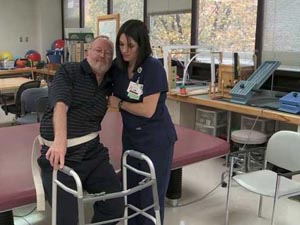 Mike Jezdimir developed TM in 1967. The foundation supports TM research at UAB in eight disciplines: rehabilitation, neurology, microbiology, cell/developmental/integrative biology, psychiatry/behavioral neurobiology, neurobiology, neuropathology and clinical immunology/rheumatology.
Mike Jezdimir developed TM in 1967. The foundation supports TM research at UAB in eight disciplines: rehabilitation, neurology, microbiology, cell/developmental/integrative biology, psychiatry/behavioral neurobiology, neurobiology, neuropathology and clinical immunology/rheumatology.Pre-registration is $25 for the 5K and $15 for the fun run, $10 for children 12 and under. Same-day registration is $30 for the 5K and $20 for the fun run. Register at http://www.mikestransversemyelitis.com/ under ‘events’.
Prizes include a Kindle Fire and Coolpix camera from Best Buy, cake from Joe’s Italian, haircuts from Sports Clips, gift certificates from Ernest McCarty Ford, wine from Vizzini Farms, Academy Sports gift certificates, Walgreens gift cards, Fox Valley Restaurant gift certificates, O’Charley’s Restaurant gift certificates, Road ID 7 gift certificates, Jim & Nick’s cheese biscuits, Darlene’s Boutique and Gift Shop gift certificates, free services from Premier Family Dentistry and a mystery gift from Paul’s Diamond Center.
TM is a rare inflammatory disease causing injury to the spinal cord. Attacks of inflammation can damage or destroy myelin, the fatty insulating substance that covers nerve cell fibers. This damage causes nervous system scars that interrupt communications between the nerves in the spinal cord and the rest of the body. TM occurs in adults and children, and peak incidence rates occur between the ages of 10-19 and 30-39 years. Approximately one-third of those with TM get better and return to their baseline. Another third will have some changes to their body that will affect them the rest of their life. The final third are left with some type of permanent disability.